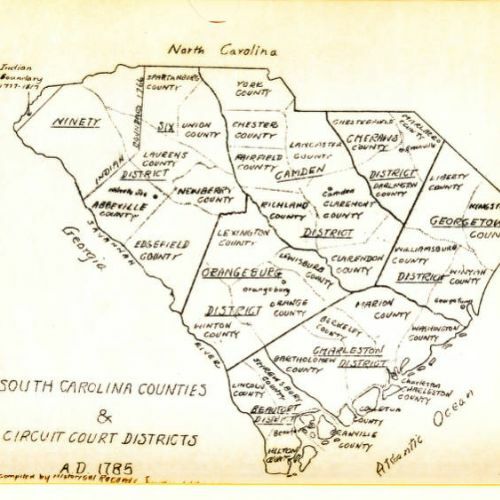North Carolina and South Carolina, two states steeped in rich history and cultural heritage, boast extensive collections of county records that serve as invaluable resources for genealogists and historians alike. From birth and marriage certificates to property deeds and court documents, these records offer a glimpse into the lives of past generations and provide a framework for understanding the development of these states. In this blog post, we'll delve into the wealth of information contained within North Carolina and South Carolina county records and explore how they can be accessed for genealogical research.

Tracing Family Roots in the Tar Heel State
North Carolina's county records are a treasure trove for those seeking to trace their family lineage in the Tar Heel State. With records dating back to colonial times, researchers can uncover a wealth of information about their ancestors' lives. Birth, marriage, and death records provide vital statistics and family connections, while land deeds and probate records offer insights into property ownership and inheritance patterns. Additionally, North Carolina's extensive collection of court records, including wills, estates, and guardianships, shed light on legal proceedings and societal norms of past eras. By accessing these records, genealogists can piece together the puzzle of their North Carolina heritage and gain a deeper understanding of their familial roots.
South Carolina County Records: Unlocking the Palmetto State's Past
Similarly, South Carolina's county records offer a wealth of information for those researching their family history in the Palmetto State. From the coastal Lowcountry to the Upstate region, each county holds a unique trove of historical documents waiting to be explored. Census records provide snapshots of population demographics over time, while vital records document births, marriages, and deaths within the state. Land grants and deeds trace the migration patterns of early settlers, while court records illuminate legal proceedings and social customs of bygone eras. With South Carolina's rich tapestry of cultural influences, including Native American, African, and European heritage, county records serve as essential tools for unraveling the complexities of family history in the state.
Accessing County Records for Genealogical Research
Access genealogy Recordand South Carolina county records for genealogical research has become increasingly convenient in the digital age. Many county archives and historical societies offer online databases and digitized collections, allowing researchers to search for records from the comfort of their own homes. Additionally, state-level repositories and genealogical websites often provide access to indexed records and research guides to aid in the search process. For those unable to access records online, visiting county courthouses and archives in person remains a viable option, where dedicated staff members are often available to assist with research inquiries. By leveraging these resources, genealogists can unlock the mysteries of their family's past and connect with the rich history of North Carolina and South Carolina.
